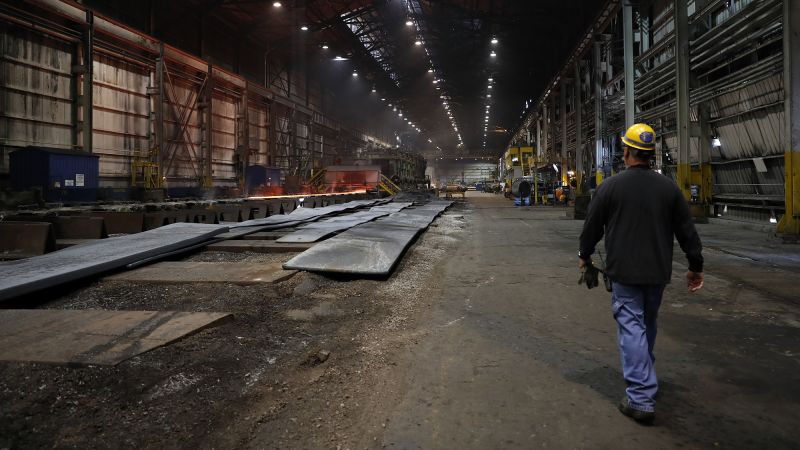US treasury secretary Scott Bessent has refused to acknowledge that the sweeping trade tariffs imposed by Donald Trump around the world are taxes on Americans.
In a new interview on Sunday with NBC host Kristen Welker, Bessent, a former billionaire hedge fund manager, dismissed concerns from major American companies including John Deere, Nike and Black and Decker who have all said that Trump’s tariffs policy will cost them billions of dollars annually.
Addressing Welker, Bessent said: “You’re taking these from earnings calls, and on earnings calls, they have to give the draconian scenario. There aren’t companies coming out and saying, ‘Oh, because of the tariffs, we’re doing this.’”
He went on to add: “If things are so bad, why was the GDP 3.3%? Why is the stock market at a new high? Because, you know, with President Trump, we care both about big companies and small companies.”
As concerns continue to grow over American companies trying to pass on the cost of US tariffs on to everyday Americans, Welker asked: “Do you acknowledge that these tariffs are a tax on American consumers?” To which Bessent replied: “No, I don’t.”
Bessent’s latest interview follows a ruling by a federal appeals court which found that Trump had overstepped his presidential authority when he imposed sweeping tariffs on dozens of countries earlier this year that sent shockwaves across global markets.
The tariffs established a 10% baseline for nearly all of the US’s trading partners. Trump also imposed so-called “reciprocal” tariffs imposed on countries that he accused of unfairly treating the US in trade. Lesotho, a south African nation of 2.3 million people faced a 50% tariff, while Trump also imposed a 10% tariff on a group of uninhabited islands home to penguins near Antarctica.
In response to the federal appeals court’s decision, the Trump administration has recently asked the US supreme court to overturn the ruling.
Speaking on whether the Trump administration would be prepared to offer rebates if the supreme court rules against the administration, Bessent said: “We would have to give a refund on about half the tariffs which would be terrible for the treasury… There’s no ‘be prepared.’ If the court says it, we’d have to do it.”
Nevertheless, Bessent remained confident that the conservative-majority supreme court would side with the Trump administration, saying: “I am confident that we will win at the supreme court. But there are numerous other avenues that we can take. They diminish president Trump’s negotiating position … This isn’t about the dollars. This is about balance. The dollars are an after amount.”
Bessent’s comments also came on the heels of newly released data from the Bureau of Labor Statistics which revealed that in August, 12,000 manufacturing jobs were lost, marking a total loss of 42,000 jobs since April when Trump made his tariff announcement.
“Are these numbers proof that the tariffs are failing to produce the manufacturing jobs that President Trump promised?” Welker asked Bessent, to which he replied: “It’s been a couple of months. And with the manufacturing sector … we can’t snap our fingers and have factories built.”
Bessent went on to add that he believes “by the fourth quarter, we’re going to see a substantial acceleration”.
In addition to a decline in manufacturing employment since April, job openings and hires have fallen by 76,000 and 18,000, respectively, according to the Center for American Progress.
According to economists, Trump’s tariffs are expected to cost American households $2,400 annually while wage growth among manufacturing workers remain stagnant under the tariffs.
In August, manufacturing workers earned an hourly average of $35.50, marking only a 10-cent increase from July, the center reported.
Source link
